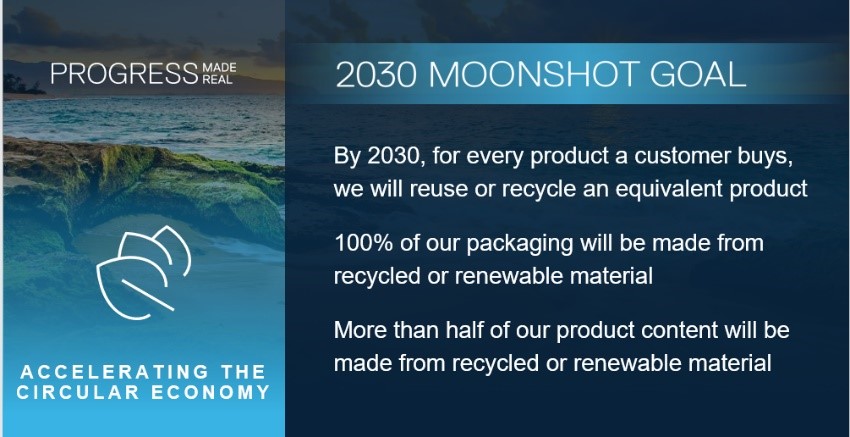As risks to the environment grow, organizations around the globe have rapidly embraced sustainability goals and programs. They realize that strong sustainability practices are not just beneficial to the climate, but they are also good for business. These programs mitigate the impacts of the climate crisis on the environment but can also boost reputations, enhance operations and even improve financial performance.
At the UN Climate Change Conference of the Parties (COP26) in Glasgow, heads of state and climate experts are gathering to take actions to get to net zero emissions by 2050. Many expect that the conference will lead to additional regulations and requirements for organizations that don’t meet specific levels of standards.
Dell Technologies is committed to being an environmental steward. As far back as 1996 we debuted our Asset Resale & Recycling Services for businesses followed by Dell Reconnect in 2004 and recycling services in 2006. Through these programs and others, we are keeping our products in the economy longer while also enabling the materials to be recycled and reused. By designing waste out of our products and reusing e-waste, we are making strides toward achieving our goals of making our products with 50% recycled or renewable materials.

Our comprehensive sustainability program is based on three strategic approaches; accelerate the circular economy, protect the planet and champion the people who build our products. And, in February 2020 we launched our 2030 Moonshot Goals. As we continue to move from goals and promises to progress and action, we believe technology plays a critical role.
PowerEdge Innovations: Sustainability from Design to End of Life
We have built sustainability into the Dell EMC PowerEdge portfolio, by improving the servers’ designs so they work more efficiently and using sustainable materials in an innovative manner.
Sustainable materials: Dell Technologies’ products include materials like tree-based bioplastic, reclaimed carbon fiber and recycled aluminum. We are also exploring recycled steel and sourcing more closed-loop material from products returned to Dell via our Asset Recovery Services. Today, PowerEdge products contain up to 35% recycled plastic.¹ We are also on track to meet our goal of having the packaging made from 100% recycled or renewable materials by 2030.
Thermal design and cooling: Multi-vector cooling (MVC), Dell liquid cooling (DLC) and our thermal design innovations reduce an organization’s carbon footprint by decreasing energy and cooling needs. The T-shaped motherboard layout in the PowerEdge R650 and R750 allows for improved airflow balancing and system cooling while DLC in PowerEdge servers cools up to four times faster than air.
Power efficiency and infrastructure consolidation: Since 2013, we have reduced energy intensity by 83%² in our PowerEdge products through engineering advancements. In our latest generation of servers, we increased our energy efficiency by 29% from the previous one.³ Also, we reduced the amount of hardware needed to meet an organization’s needs. In 2013, it took six servers to do what is possible with just one server today.
Our commitment and hard work led to 43 PowerEdge servers meeting the high standards of the US EPA’s Electronic Product Environmental Assessment Tool (EPEAT) and a 3.0 Energy Star rating throughout the portfolio.

Partnering to Improve Sustainability
As organizations strive to adopt IT sustainability goals, the green data center has become a target. But success requires cooperation. Beyond creating strong sustainability practices for our own products and solutions, Dell Technologies can also support our customers wherever they are in their sustainable IT journey. As the digital economy marches onward, data centers have grown larger, more complex and consume vast amounts of energy needed to process the zettabytes of data that are generated.
Today, modern data centers have improved layouts and implement more efficient cooling technology but it’s still crucial to use the right hardware solutions. In partnership with Dell Technologies, organizations can implement more eco-friendly data centers, supported by more powerful yet energy efficient technology, to help safeguard the environment while also lowering their costs.
Dell’s sustainable hardware solutions enable organizations to create more efficient data centers that require a smaller footprint, use less energy, limit the destructive extraction of natural resources and support organizations on their sustainability journeys.
Learn more about Dell Technologies’ sustainability goals and achievements and our PowerEdge servers.
1Based on Dell analysis of publicly available data, October 2019.
2Based on Dell analysis of publicly available data, February 2021.
3Based on Dell analysis of publicly available data, February 2021.
